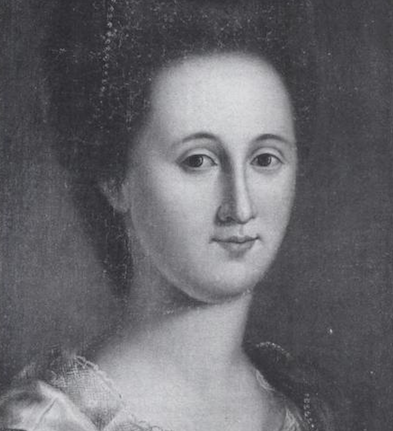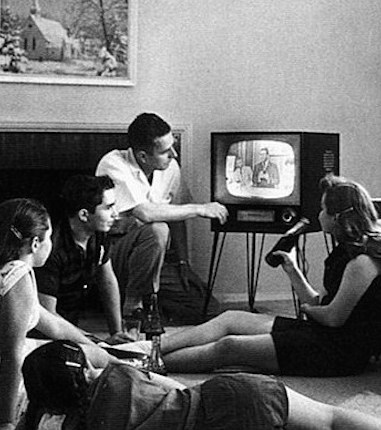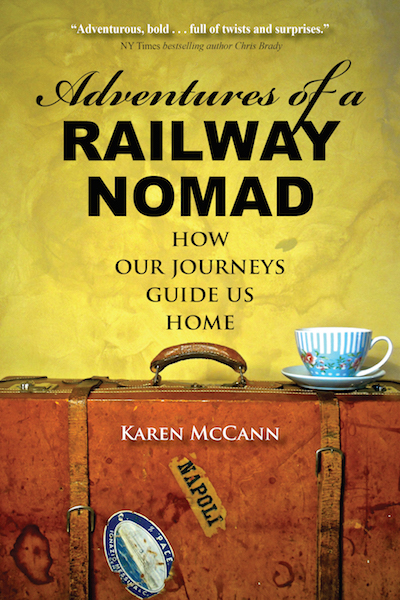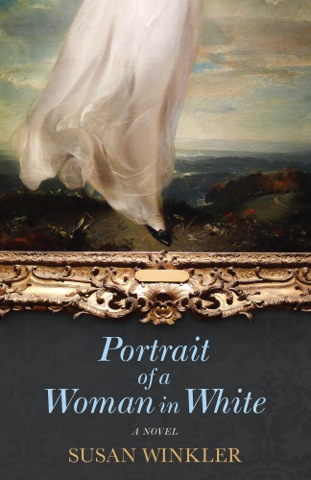Sometimes when I’m exploring 1776 essays or letters for research for my book, I get lost in a quagmire of how things used to be written. So I have to translate them into today’s causal language. This helps me understand the issues of the past so I can make sense of the them for my reader.
Case in point, an essay written by Esther de Berdt Reed called Sentiments. Esther wrote this essay in order to push women who were staying at home during the American Revolution to contribute to the Cause. Her husband was fighting with George Washington. In the end, her essay helped form the Ladies Association of Philadelphia, and they raised over $300,000 to produce linen and shirts for the Continental Army.
For all those wives whose husbands are away fighting in foreign lands, here’s a hero for you.
Below Esther’s picture is her published essay, with my translation in italics (even though by adding it it blows my 250 words for the blog):

SENTIMENTS (An Op-Ed)
ON the commencement of actual war, the Women of America manifested a firm resolution to contribute as much as could depend on them, to the deliverance of their country. (When this whole thing started, the women of this continent said they’d support forming a new country, too.)
Animated by the purest patriotism, they are sensible of sorrow at this day, in not offering more than barren wishes for the success of so glorious a Revolution. and this sentiment is universal from the north to the south of the Thirteen United States. (Women say they’re patriots, by sadly they’re only offering empty prayers hoping we’ll win the war–and this is true regardless of which colony we live in.)
Our ambition is kindled by the same of those heroines of antiquity, who have rendered their sex illustrious, and have proved to the universe, that, if the weakness of our Constitution, if opinion and manners did not forbid us to march to glory by the same paths as the Men, we should at least equal, and sometimes surpass them in our love for the public good. (Women have within us a history of great women who proved that just because we’re physically smaller, or perceived to be weaker, and not allowed to go to war, doesn’t mean we can’t be better than the men at being patriotic.)
I glory in all that which my sex has done great and commendable. (I think chicks have proven to achieve some amazing acts.)
I call to mind with enthusiasm and with admiration, all those acts of courage, of constancy and patriotism, which history has transmitted to us: (Let me give you some awesome examples of kick-assery that history hands down to us.)
The people favoured by Heaven, preserved from destruction by the virtues, the zeal and the resolution of Deborah, of Judith, of Esther! (The biblical stories of Deborah, Judith and Esther were kept and retold because those ladies had grit and determination.)
The fortitude of the mother of the Massachabees, in giving up her sons to die before her eyes: Rome saved from the fury of a victorious enemy by the efforts of Volumnia, and other Roman Ladies: So many famous sieges where the Women have been seen forgeting the weakness of their sex, building new walls, digging trenches with their feeble hands, furnishing arms to their defenders, they themselves darting the missile weapons on the enemy, resigning the ornaments of their apparel, and their fortune, to fill the public treasury, and to hasten the deliverance of their country; burying themselves under its ruins, throwing themselves into the flames rather than submit to the disgrace of humiliation before a proud enemy. (History has shown us that we are capable of this, all the way back to the early Romans. Those women forgot they were chicks, built walls, dug holes, provided weapons, picked up arms, quit dressing all fancy and spending money so the country could use it. They’d rather their bodies be under the rubble of Rome than be wusses in front of their enemies.)
Born for liberty, disdaining to bear the irons of a tyrannic Government, we associate ourselves to the grandeur of those Sovereigns,cherished and revered, who have held with so much splendour the scepter of the greatest States, The Batildas, the Elizabeths, the Maries, the Catharines, who have extended the empire of liberty, and contented to reign by sweetness and justice, have broken the chains of slavery, forged by tryants in the times of ignorance and barbarity. (Even examples of the past queens of England show us that we can build empires of freedom, while being nice and fair, and not giving into the idea we are subordinates–no longer bound by stupid or antiquated ideas thrust on us.)
The Spanish Women, do they not make, at this moment, the most patriotic sacrifices, to encrease the means of victory in the hands of their Sovereign. He is a friend to the French Nation. They are our allies. We call to mind, doubly interested, that it was a French Maid who kindled up amongst her fellow-citizens, the flame of patriotism buried under long misfortunes: It was the Maid of Orleans who drove from the kingdom of France the ancestors of those same British, whose odious yoke we have just shaken off; and whom it is necessary that we drive from this Continent. (If the French and Spanish women are/have been supporting freedom against tyranny and past ties to England, we can. We have to support our allies here because we’re fighting the British like they did, so let’s stick together. Heck if the virgin Joan of Arc can fight the British, we can. We’ve already declared separation from the British who are choking us, so now we have to kick them out.)
But I must limit myself to the recollection of this small number of achievements. (I could give hundreds of examples of women kicking ass in support of liberty, but that’s not really the point here.)
Who knows if persons disposed to censure, and sometimes too severely with regard to us, may not disapprove our appearing acquainted even with the actions of which our sex boasts? We are at least certain, that he cannot be a good citizen who will not applaud our efforts for the relief of the armies which defend our lives, our possessions, our liberty? (There’s always going to be someone–often a man–who will try keep women down. So let’s just agree those guys are really jerks who typically twist anything that’s good or helpful about our society, our goods or freedom.)
The situation of our soldiery has been represented to me; the evils inseparable from war, and the firm and generous spirit which has enabled them to support these. (I’ve heard it’s really bad at the front for our guys, and so as bad as that is, we have to be equally good in our support.)
But it has been said, that they may apprehend, that, in the course of a long war, the view of their distresses may be lost, and their services be forgottten. Forgotten! (But you know how it is. People’s ability to care has limits, and the longer the war drags on, the less people will continue to care or even think about the men at the front.)
never; I can answer in the name of all my sex. Brave Americans, your disinterestedness, your courage, and your constancy will always be dear to America, as long as she shall preserve her virtue. (No damn way. I say it for all of us chicks. Be brave. Not wishy-washy. Strong. Consistent in the way you care for America, for as long as she is worthy.)
We know that at a distance from the theatre of war, if we enjoy any tranquility, it is the fruit of your watchings, your labours, your dangers. (We’re not fighting. But if we’re enjoying ourselves at home, it’s because we–the women–are taking care of ourselves, but also because the men are out there working to fight for, and protect us.)
If I live happy in the midst of my family; if my husband cultivates his field, and reaps his harvest in peace; if, surrounded with my children, I myself nourish the youngest, and press it to my bosom, without being affraid of feeing myself separated from it, by a ferocious enemy; if the house in which we dwell; if our barns, our orchards are safe at the present time from the hands of those incendiaries, it is to you that we owe it. (If I’m happy it’s because I get to stay home–warm, peaceful, with family–and not fight. My guy has to go spend his days at war, in the hopes of having peace later. The reason I can stay home with my kids, and not be scared as shit of the enemy, is because my man is fighting them somewhere other than in my backyard. We owe them for that.)
And shall we hesitate to evidence to you our gratitude? (So to thank him, should we do nothing? Not act?)
Shall we hesitate to wear a cloathing more simple; hair dressed less elegant, while at the price of this small privation, we shall deserve your benedictions. (What if we kept wearing our old or more simple clothing, or quit going to the salon to get our hair done–saving even that little bit might make them grateful to us).
Who, amongst us, will not renounce with the highest pleasure, those vain ornaments, when-she shall consider that the valiant defenders of America will be able to draw some advantage from the money which she may have laid out in these; (If you think about it, wouldn’t saying no to selfishly having a bunch of shiny things show better that we get it. That we understand that men are dying in order to begin a country here? Is there an way those dollars could be better spent or saved in support of them?)
that they will be better defended from the rigours of the seasons, that after their painful toils, they will receive some extraordinary and unexpected relief; (Maybe for our guys, knowing that we’ve chosen to make do with less, and act more, will actually help them feel better while they’re away. Then they’ll know that when they come home, our shit has been handled so they can have a bit of a break.)
that these presents will perhaps be valued by them at a greater price, when they will have it in their power to say: This is the offering of the Ladies. (Our actions will be valued more than the material crap we accumulate. Then men will truly know what women are capable of doing on their own.)
The time is arrived to display the same sentiments which animated us at the beginning of the Revolution, (We have to walk the talk now. We have to act now like we we said we would in the Declaration of Independence that started this whole Revolution.)
when we renounced the use of teas, however agreeable to our taste, rather than receive them from our persecutors; when we made it appear to them that we placed former necessaries in the rank of superfluities, when our liberty was interested; (We must put down the tea cup, even though we like tea, ‘coz the British gave it to us back when we showed them our wants weren’t as important as our needs or freedom)
when our republican and laborious hands spun the flax, prepared the linen intended for the use of our soldiers; (We need to go back to making our own fabric and shirts for our own army using our own hands.)
when exiles and fugitives we supported with courage all the evils which are the concomitants of war. (We need to go back to being those rebels–even our ancestors were likely kicked out of Britain in the first place–who had the guts to fight against bad people, even though that means fighting a terrible war.)
Let us not lose a moment; (Do it now!)
let us be engaged to offer the homage of our gratitude at the altar of military valour, (Get in there! Show some respect. Be thankful. Be a warrior.)
and you, our brave deliverers, (And for you, our guys fighting for our freedom…)
while mercenary slaves combat to cause you to share with them, the irons with which they are loaded, (while a blindly devoted army is coming at you, making you fight against them so you don’t get shot by one of their bullets)
receive with a free hand our offering, the purest which can be presented to your virtue, (know that we’ve got your backs, and you can reach out to us, for we’re going to give you the respect and support you’ve earned.)









